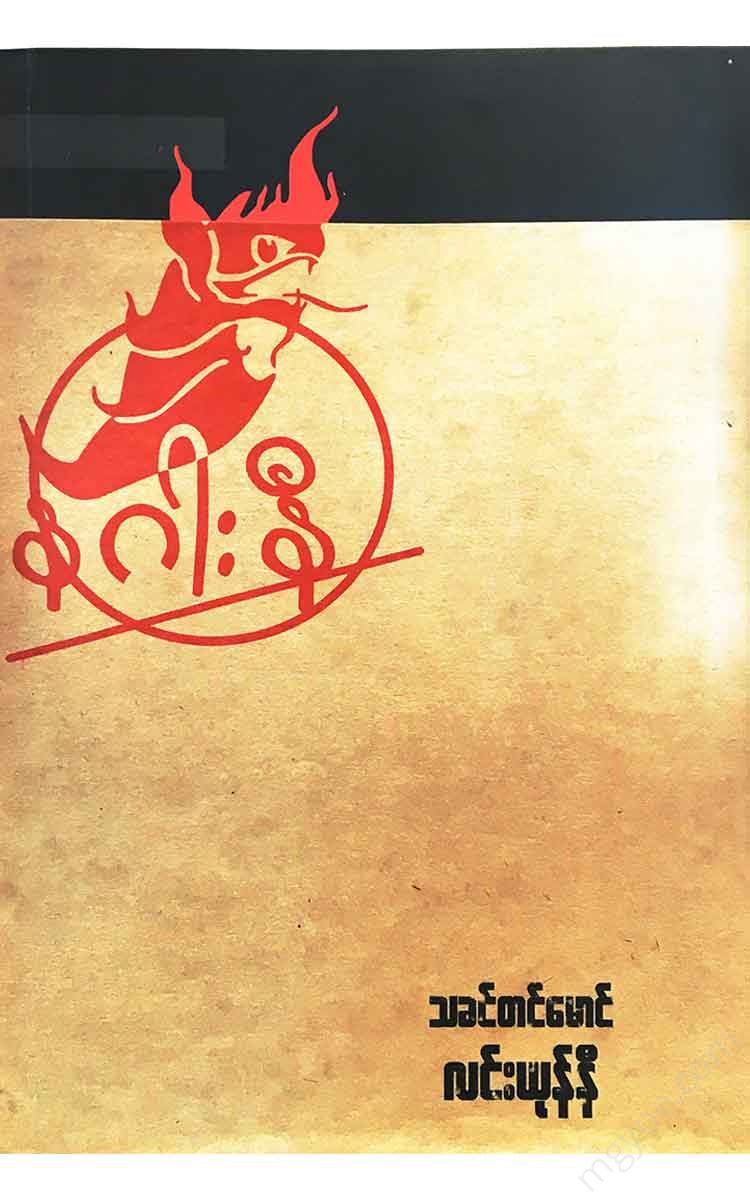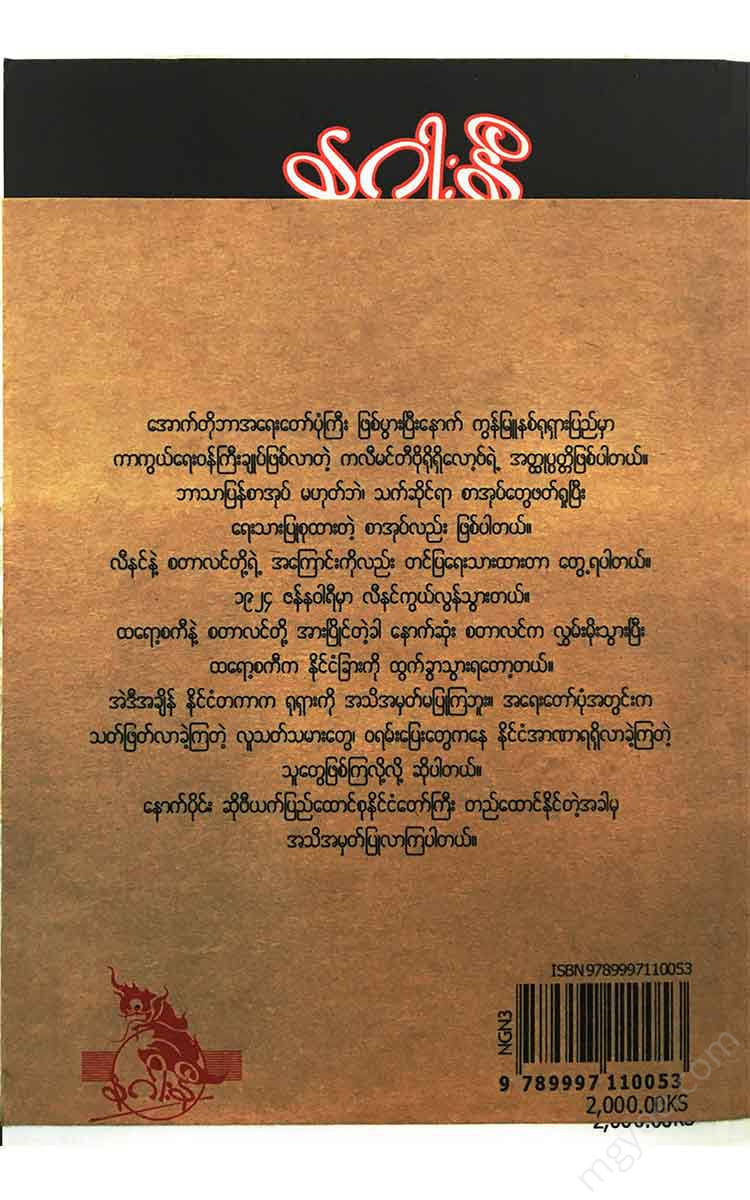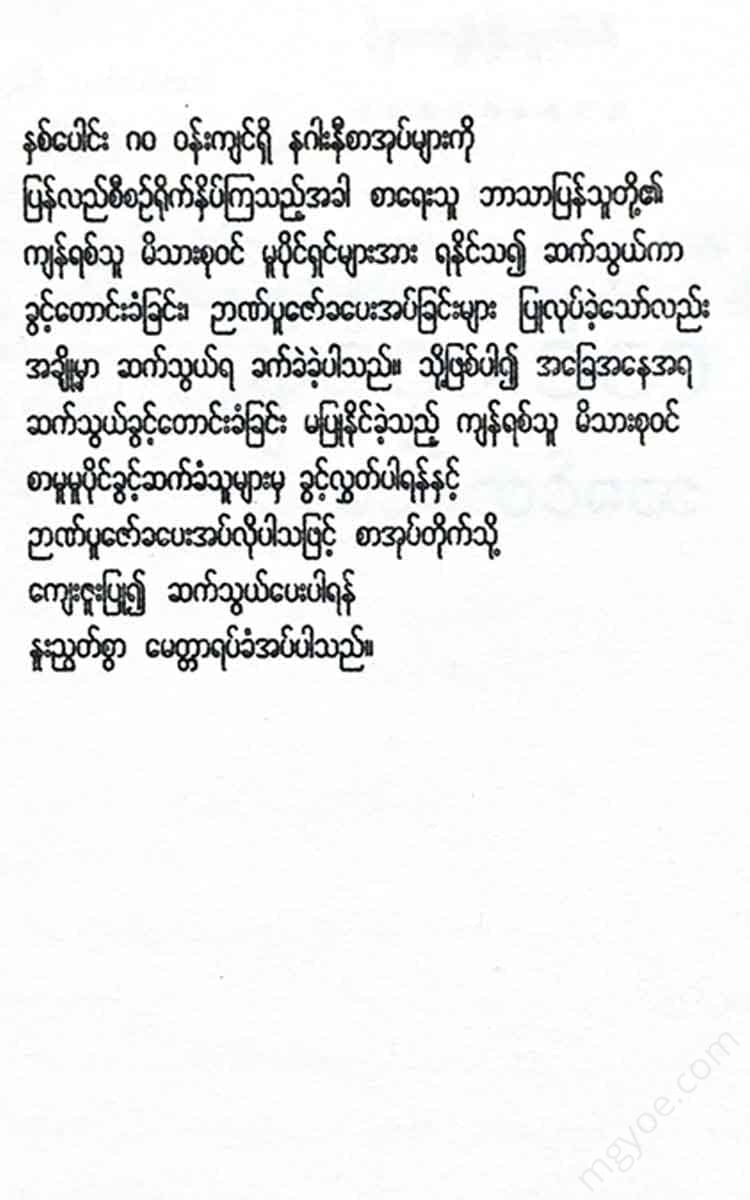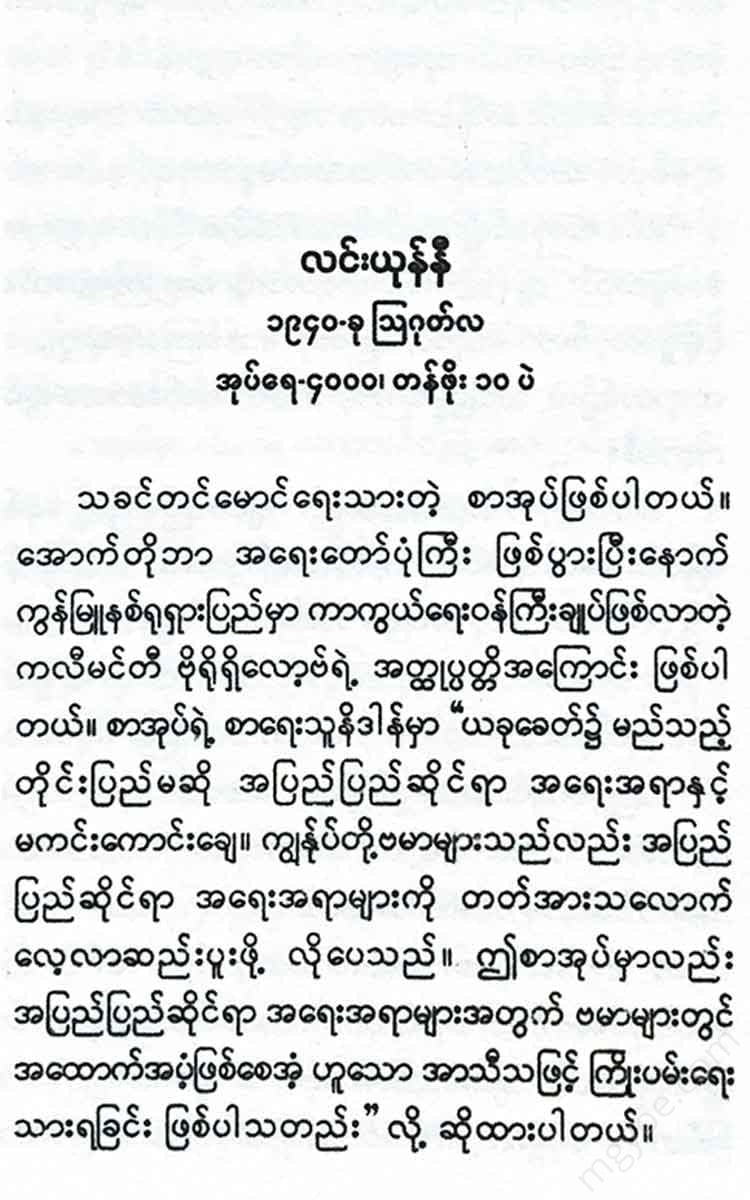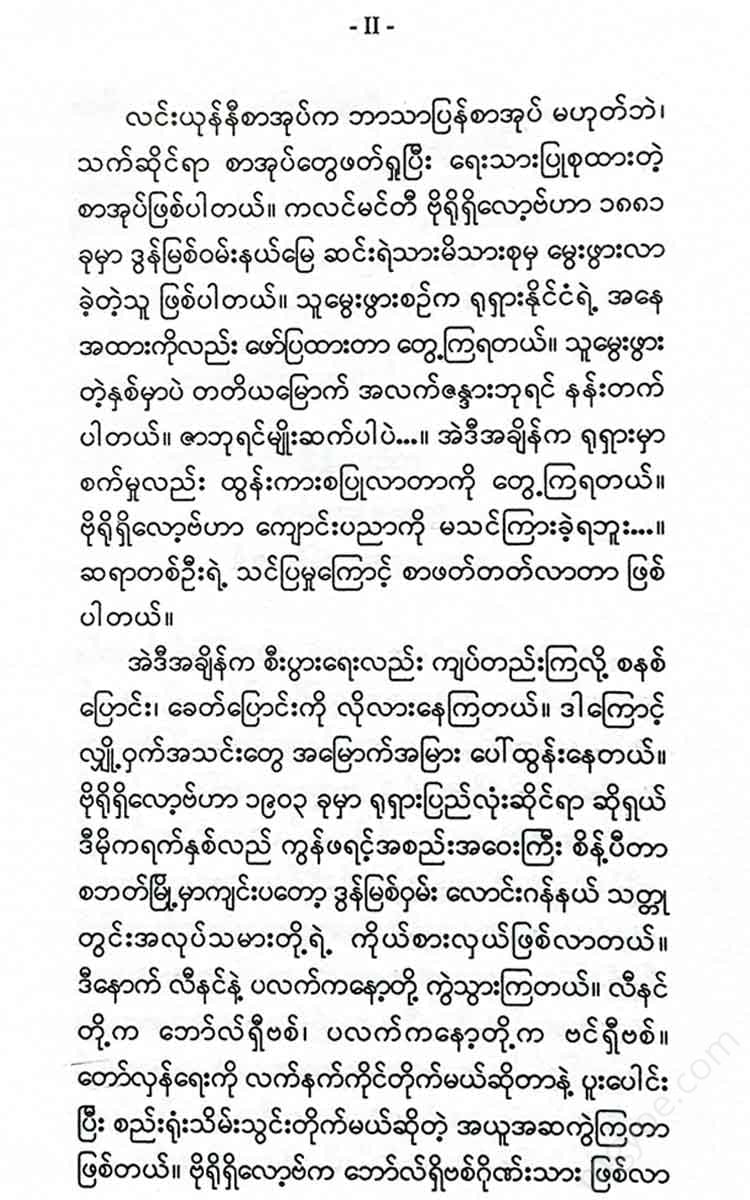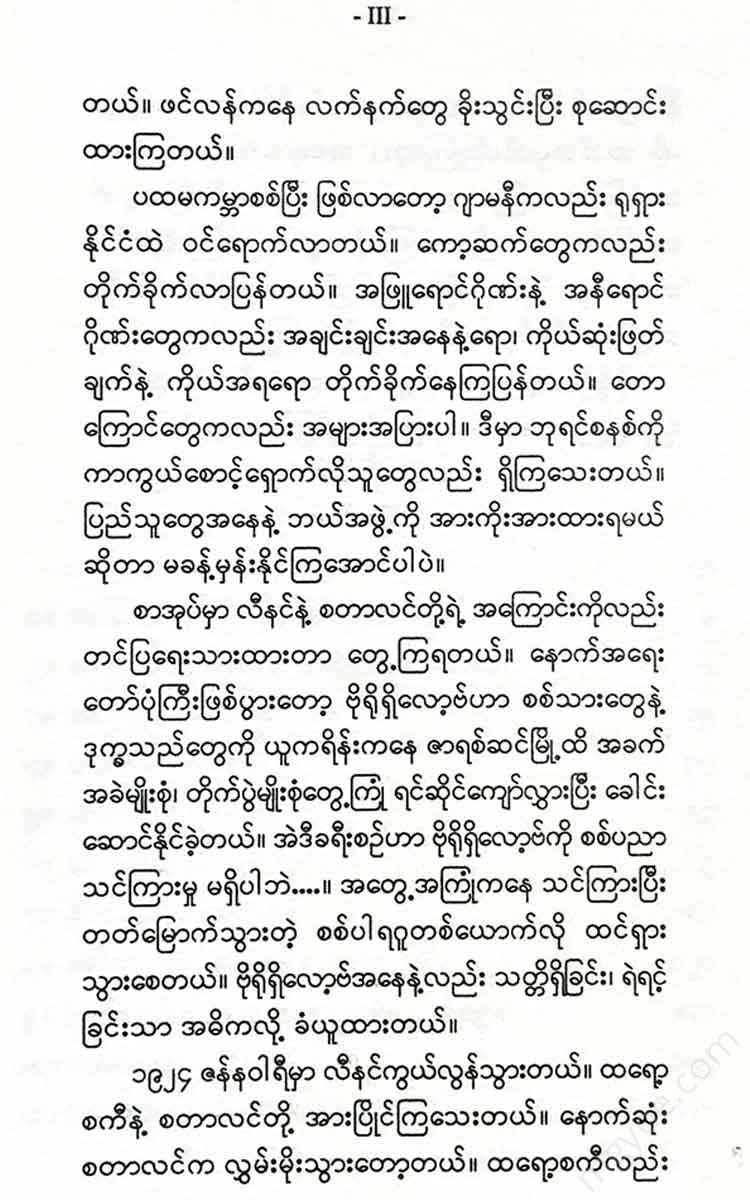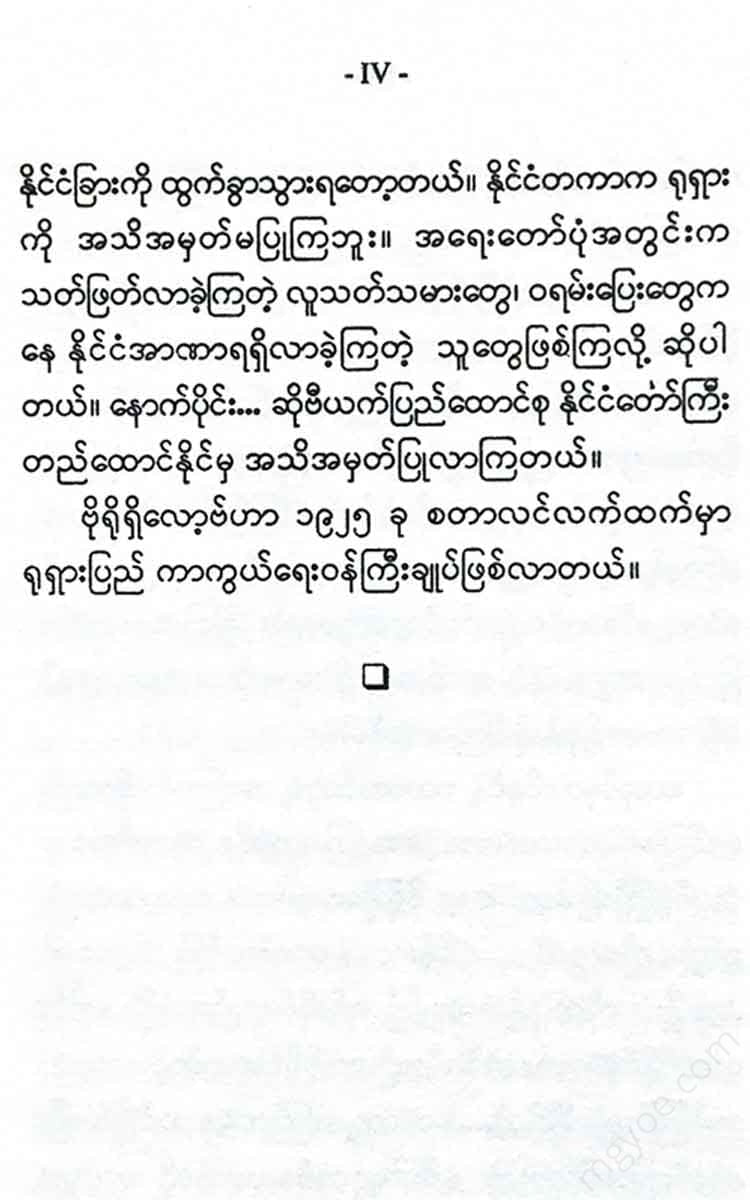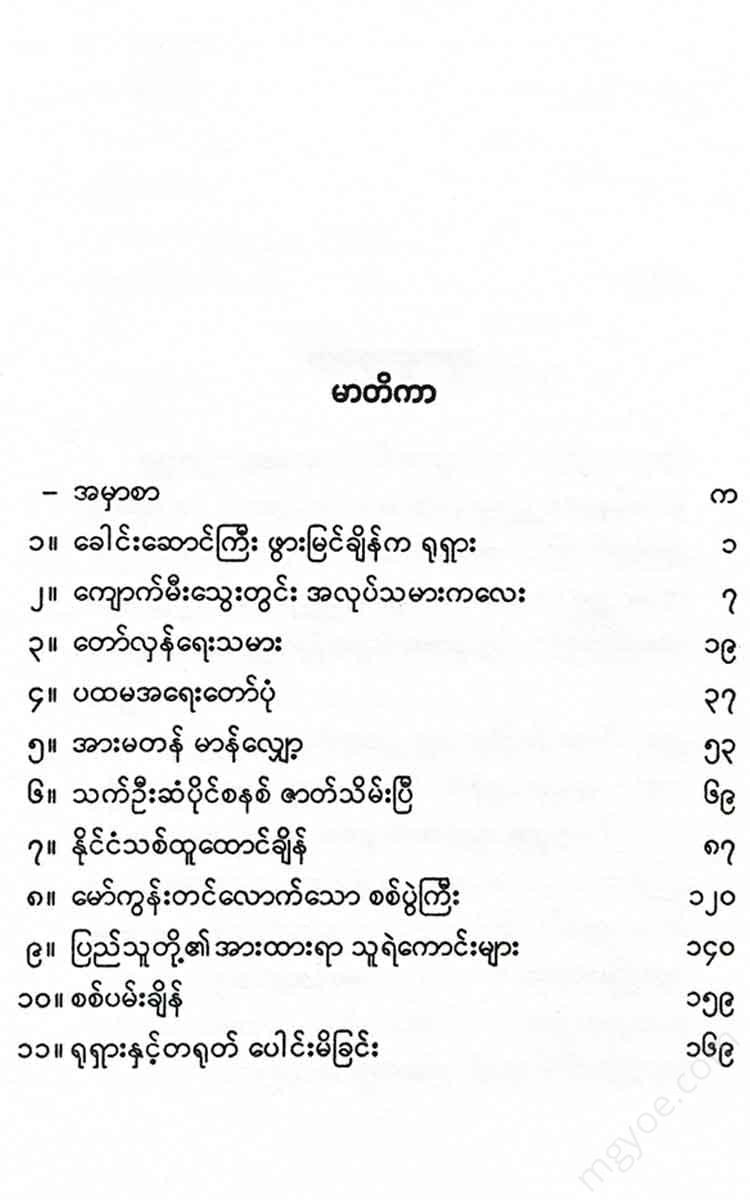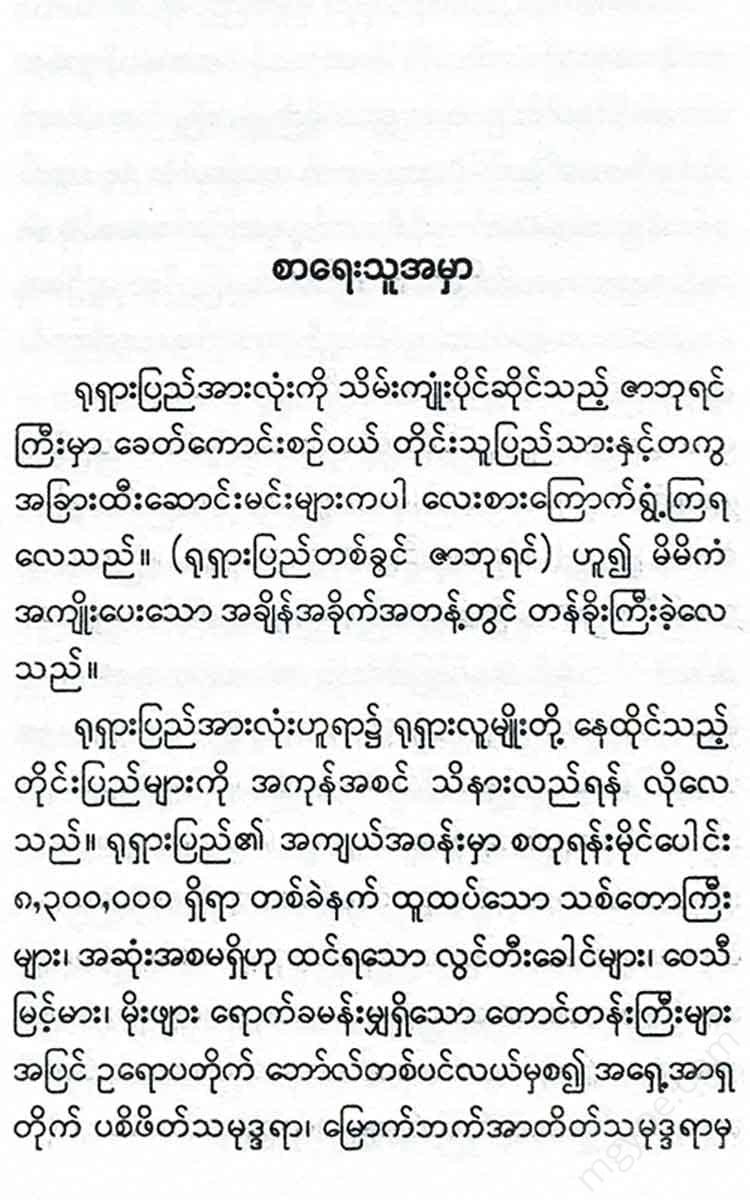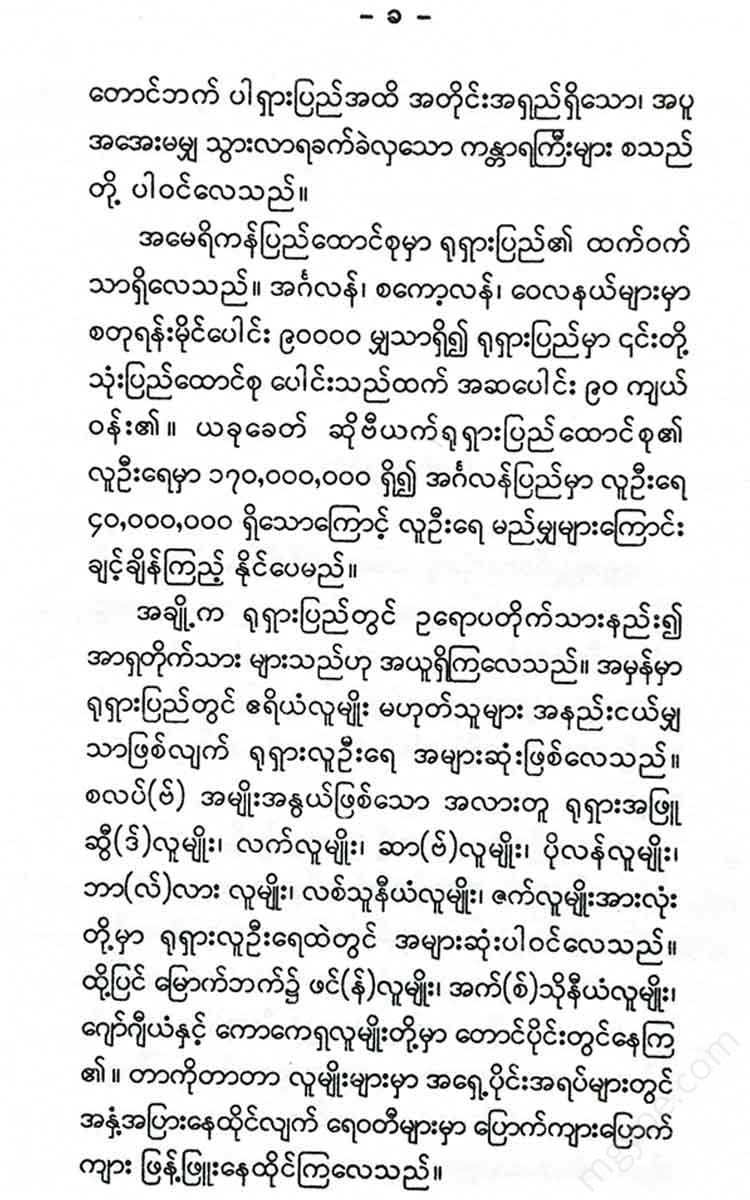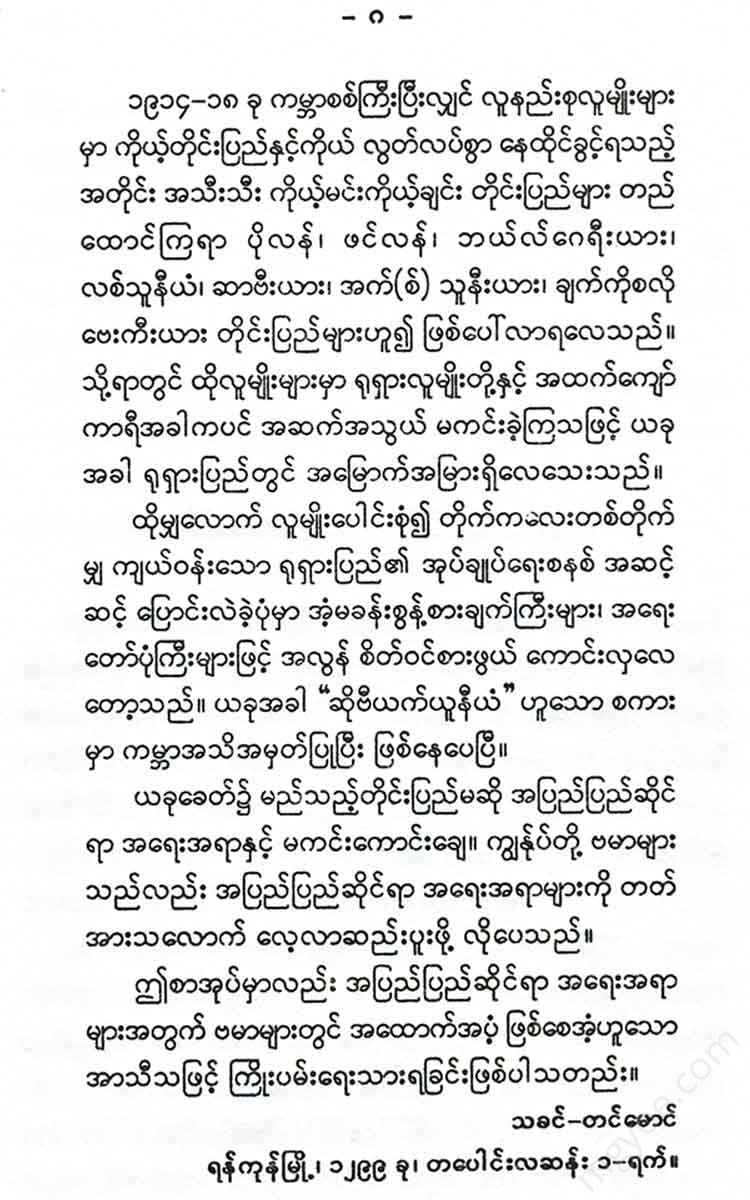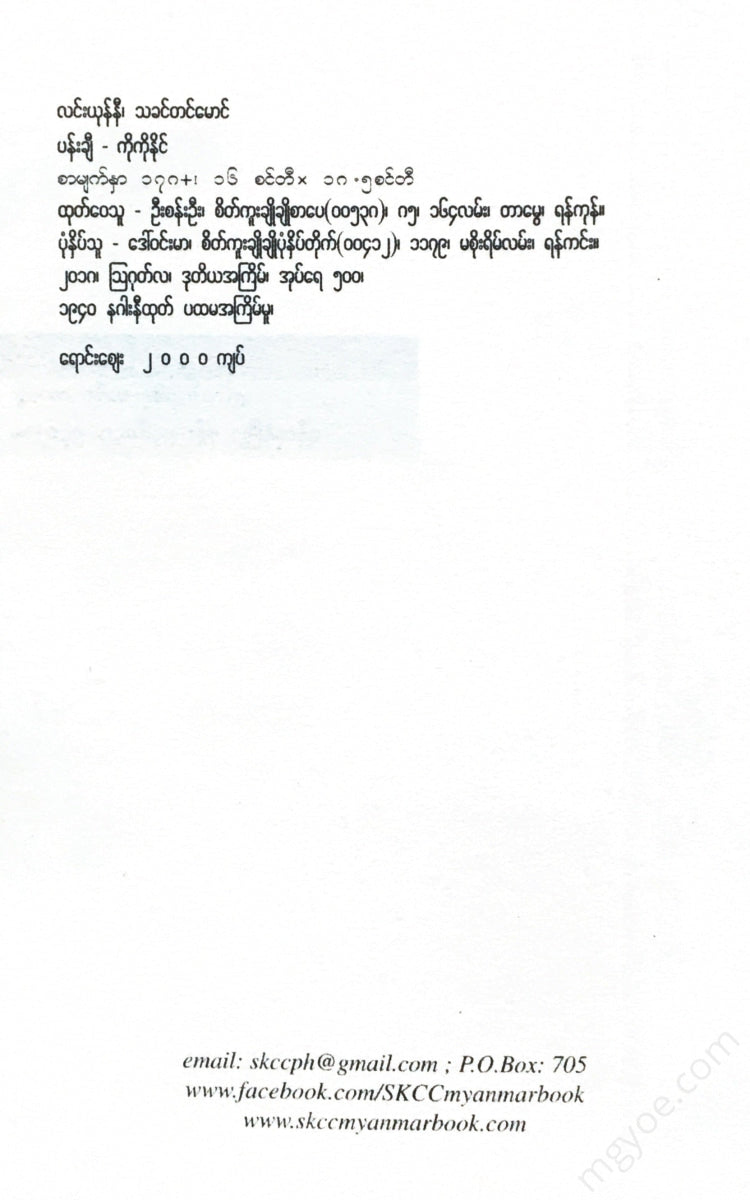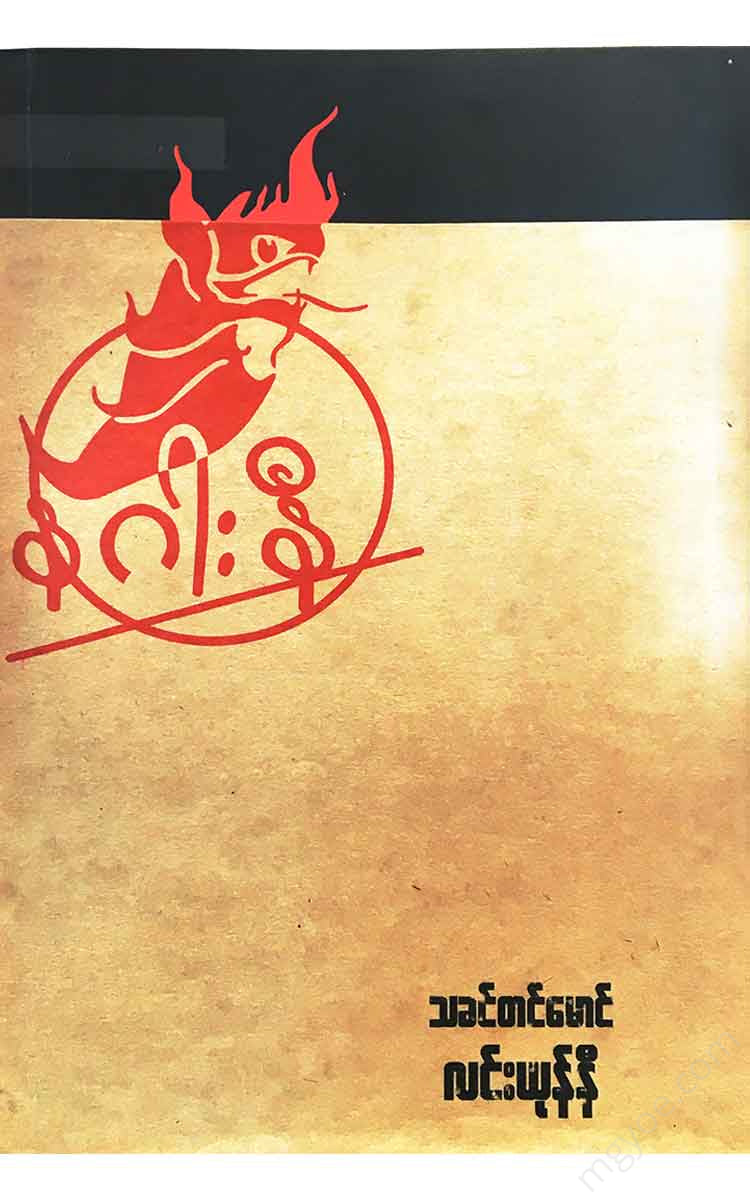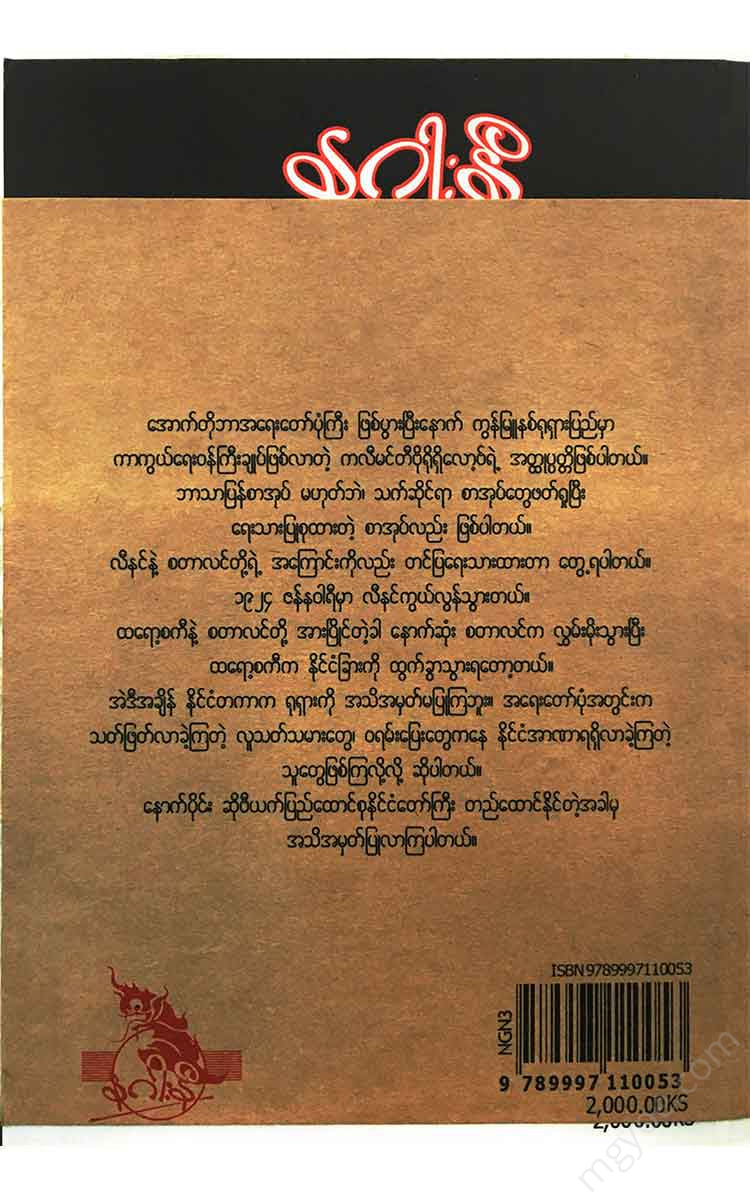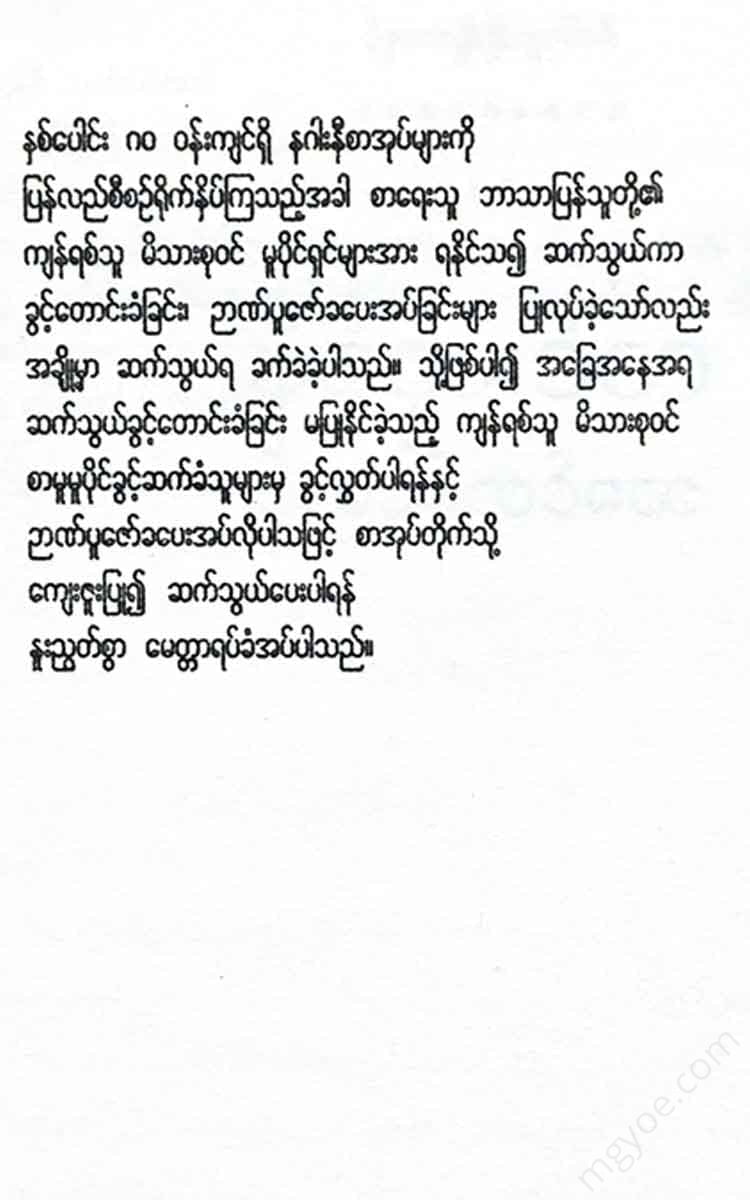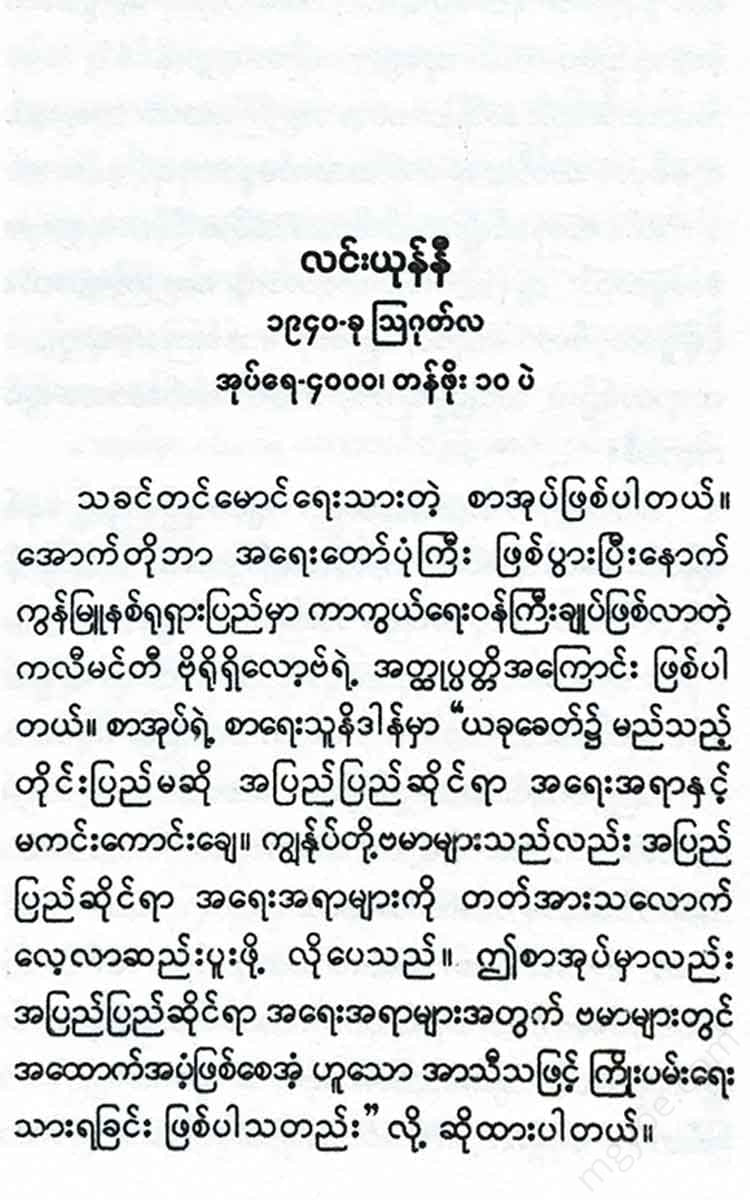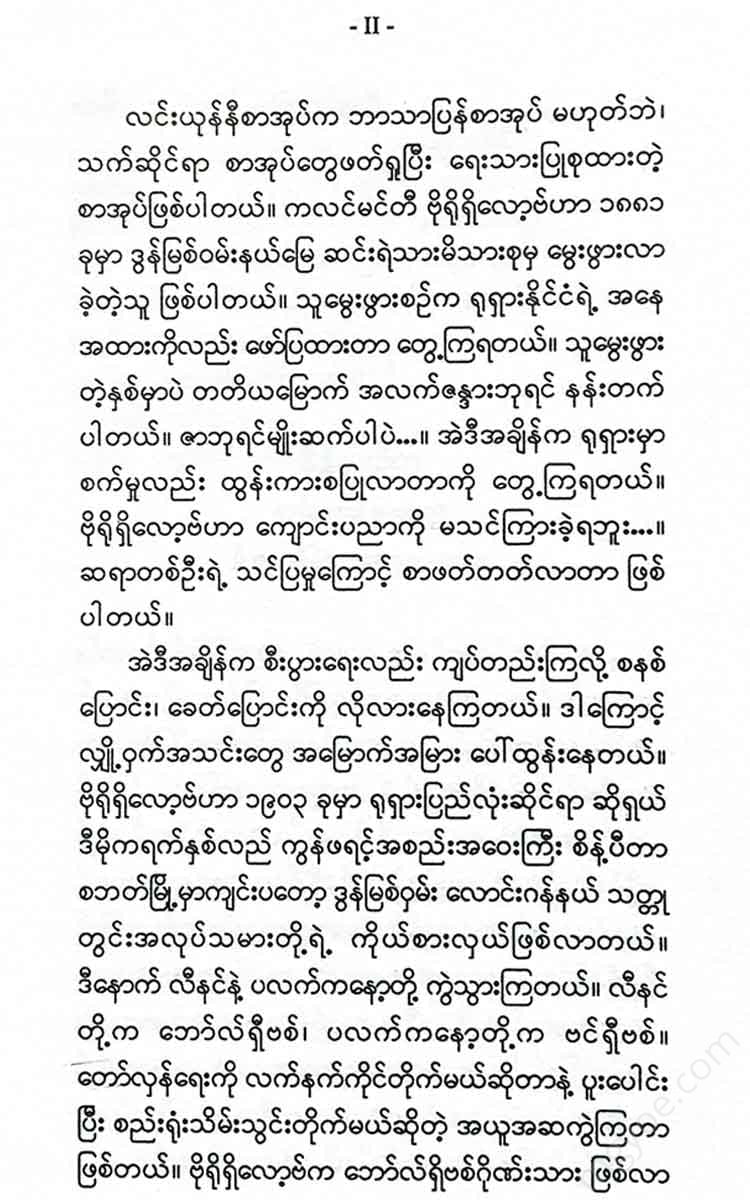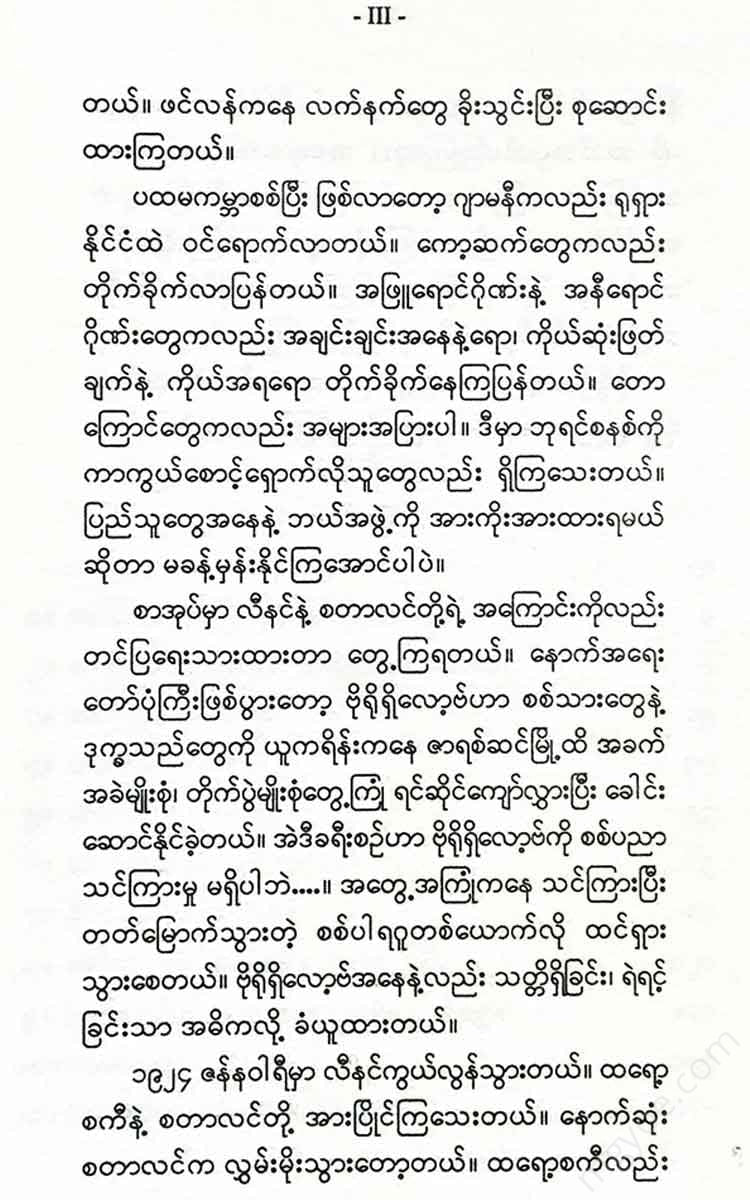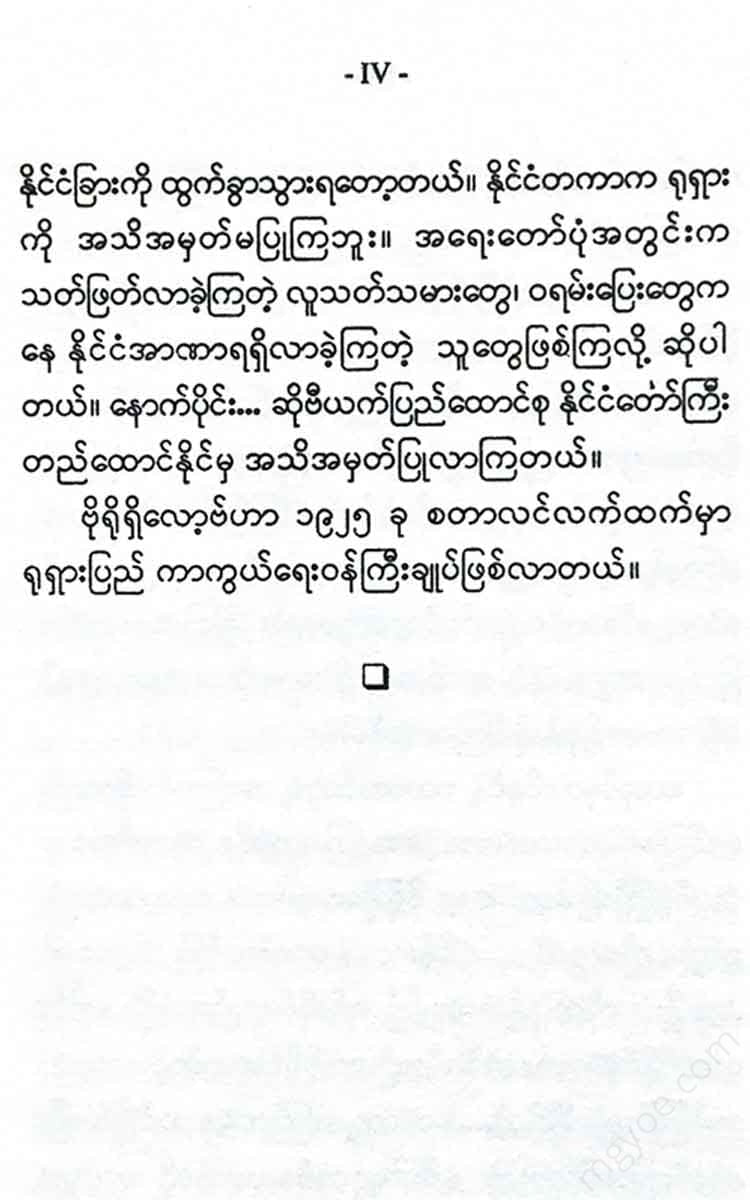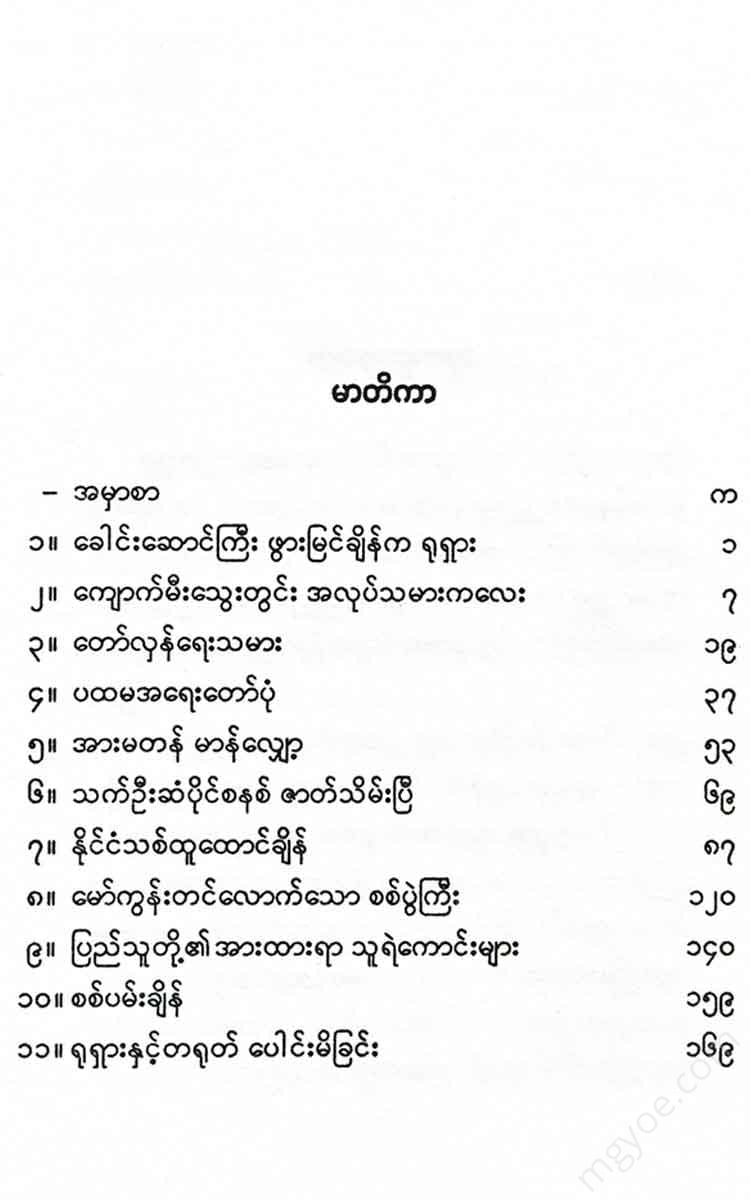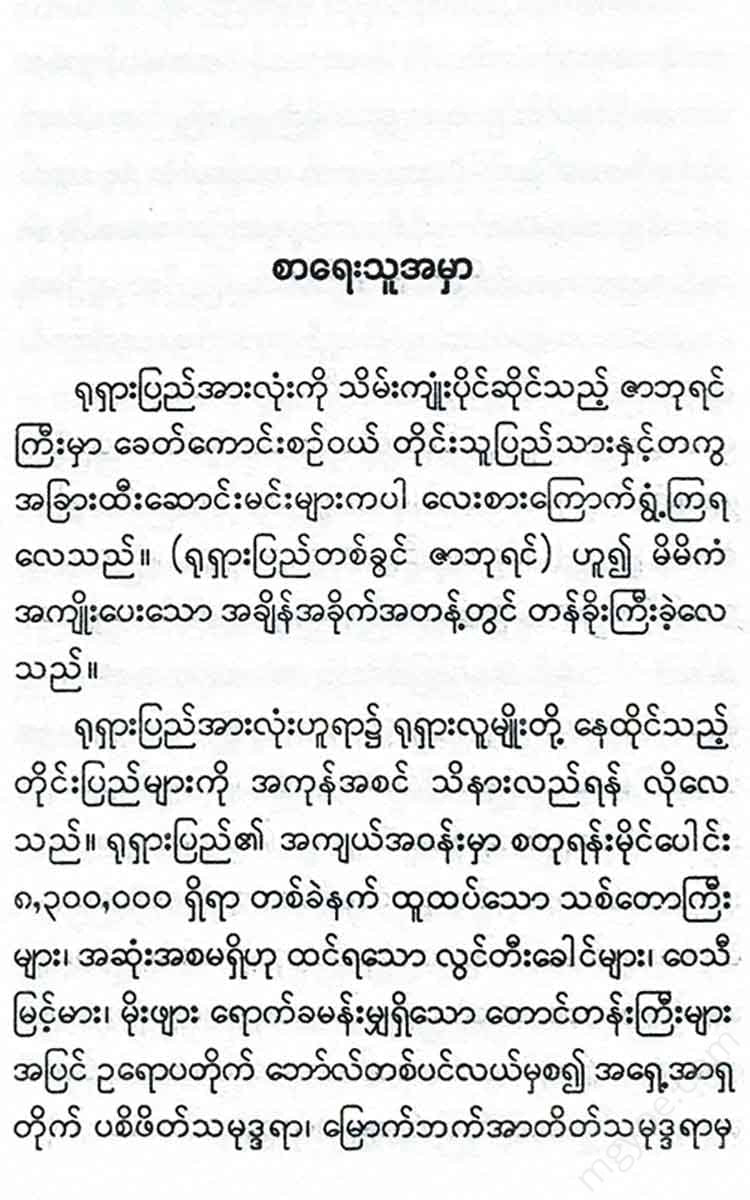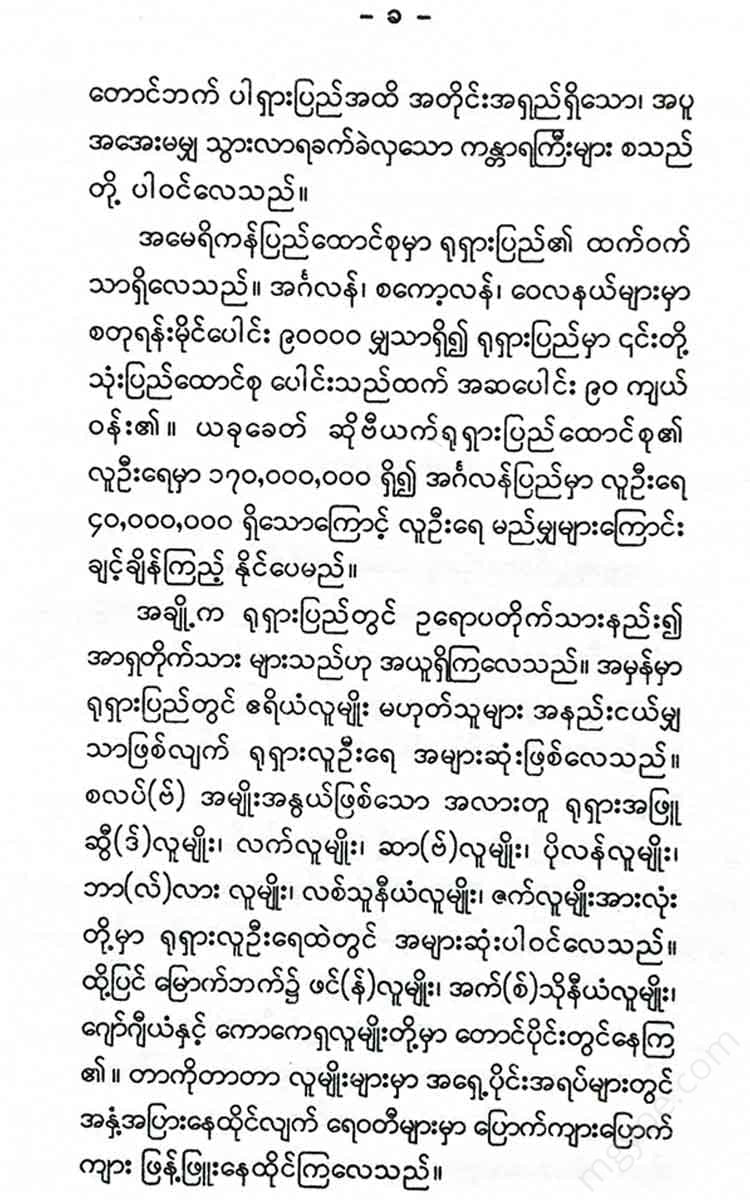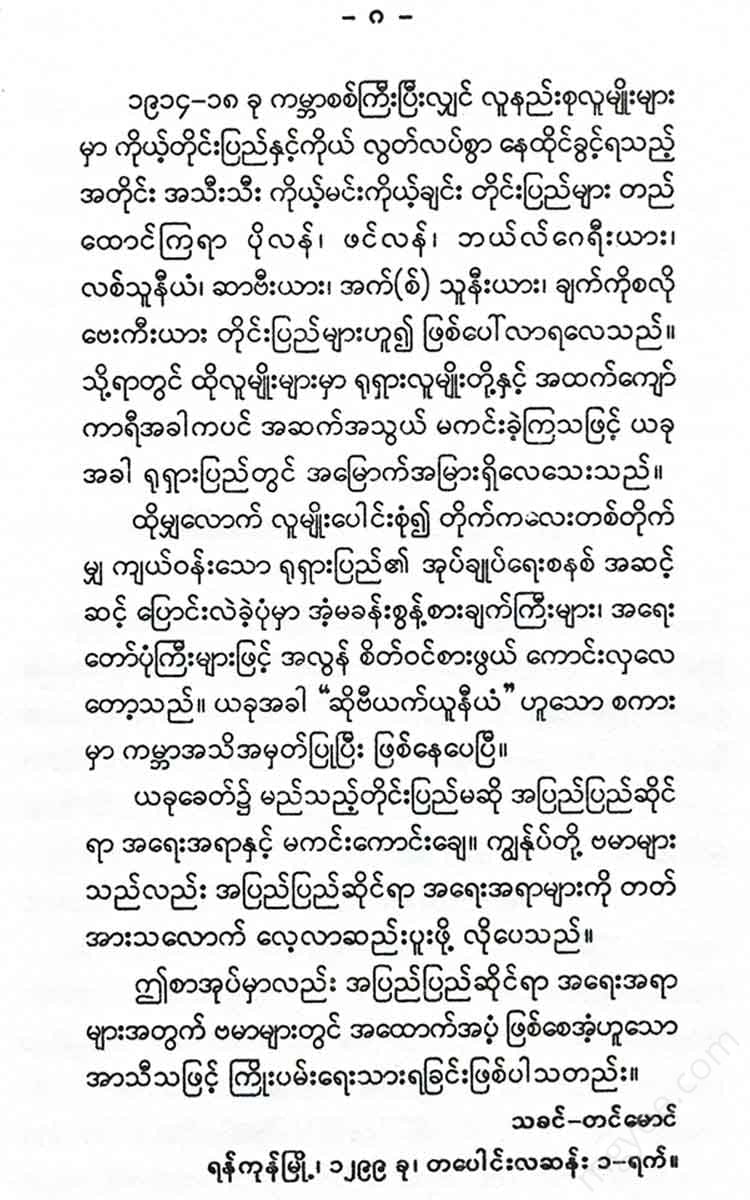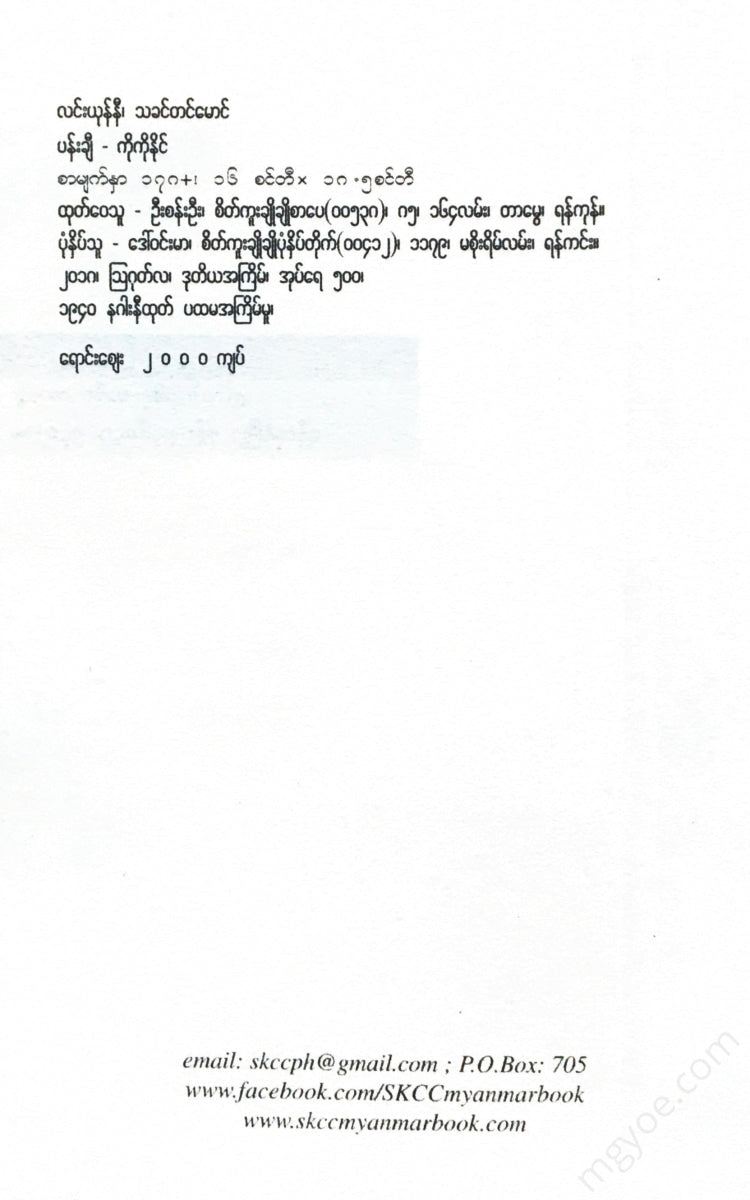စိတ်ကူးချိုချိုစာပေ
Thakin Tin Maung - Red Eagle
Thakin Tin Maung - Red Eagle
Couldn't load pickup availability
The Russian government bought the land from the landowners in 1861, allocating 13.5 acres to each farmer, and paying back the land with 6 percent interest on the land they worked. The farmers were still in debt until 1910, when they gained their independence. After the establishment of the new state in 1917, a poor republic emerged.
The above land distribution system gave rise to the word commune, which is the predecessor of the word communism that is commonly used today. Commune is a group that manages farmers and is responsible for distributing land and repaying debts to the government. The meaning of this word must be directly translated into Burmese.
Then the closest meaning is "group, group, group".
(Mir) Ma is the head of the village, meaning the village area, the forest, the land, and all the property of the village, regardless of who owns it, is considered the property of the entire village. When the system of distributing the land mentioned above came into being, the entire village was responsible for paying the taxes. In addition, they were divided according to the people in their group and according to their work, and in some groups, they divided the work every 2 years or every 3 years.
A large plot of land owned by several villages was called a volost. The land was divided among the villagers by a village council, and disputes and cases were decided by the village headman as chairman. Every man and woman in the village had the right to vote, and the decisions of the council, starting with the headman, were subject to the council's decisions.
The largest of these was the provincial council, known in Russian as the zentov. Its members included representatives of landowners, craftsmen, and peasants, who discussed and planned matters of taxation, education, health, road construction, and provincial administration.
The above-mentioned emancipation of the tenant farmers did not achieve much success. The feudal lords were dissatisfied with the unequal distribution of compensation. Those who owned a lot of land received a lot of compensation, but those who treated their serfs as their wealth suffered because they were released without receiving anything for their serfs. In turn, the peasants were dissatisfied, saying that they were given only poor and uncultivated lands and the best lands were left for the landlords. This system was like “letting the land cool, but meeting the law with the law.” Not only did it not satisfy both sides, but the peasants also developed a sense of hatred for the landlords and the feudal lords, which led them to join and help the Russian uprising.
As time passed, the previously organized system of village land distribution changed in some groups. Some continued to operate as if each had their own farm. At that time, the farmers became like small landowners. Some worked hard and accumulated wealth, while others lived carelessly and wasted their time on drinking and drugs, and could not pay taxes. Then, the negotiators came in and paid the taxes due and took over the land. As a result, the village was no longer equal as before, and small landowners emerged. They were called "bloodsuckers" who stole other people's property.
Those who oppressed the poor and the needy and took over other people's property were called "kulaks." They were the ones who gradually accumulated and became landowners, and they are still being suppressed in the current communist Russia.
Since the reign of Peter the Great, the population of the cities has increased as people from the countryside have moved to the cities. Although serfs were allowed to join the army, and if they had money, they could come to the cities and trade, only those who understood the village system were able to succeed. The cities also had to adopt the same system.
The peasants, no longer having to work in the city, became artisans. They elected an elder from among themselves and lived in the same house, paying him a salary for food and clothing. They lived and ate like boarding school students and soldiers. Such a group was called an artel (a group of workers).
In 1870, municipal government was established in large Russian cities, giving working class people the right to vote. The Yewadi people also faced opposition from small landowners called kulaks in their pursuit of business, leading to the riots mentioned above.
In such a vast land of Russia, despite the destruction of ancient systems and the creation of new ones, secret societies emerged because they were more and more starving and poor. Except for the upper class of nobles, landowners, and capitalists, all Russians wanted administrative reforms. Some wanted reforms through laws. Some wanted reforms through means. All wanted reforms.
At that time, the Russian peasants were honest and hardworking, caring only for their own food and never dreamed of such a reform of the country. They spent the money they had saved up for a whole year on weddings and funerals, and they spent their time on "spending" on alcohol and drugs.
The forest people are very low-spirited and wild, and they eat whatever they can find. During the winter months when the snow is covered, they only have to collect firewood and carry the crops to the city, so they spend their free time at home, telling stories, myths, and legends. Therefore, they have little knowledge and believe in witches, spirits, and fortune-tellers. They have never visited other areas outside their village. Witches and fortune-tellers are very numerous, and when the crops are damaged, they throw the victim of witchcraft into the lake in the village to test him, and the victim of witchcraft loses his life. They also drink and have fun at the Buddha and spirit festivals.
The situation described above was occurring in Russia in 1881, the year Voroshilov, who would become a great Russian leader, was born.
